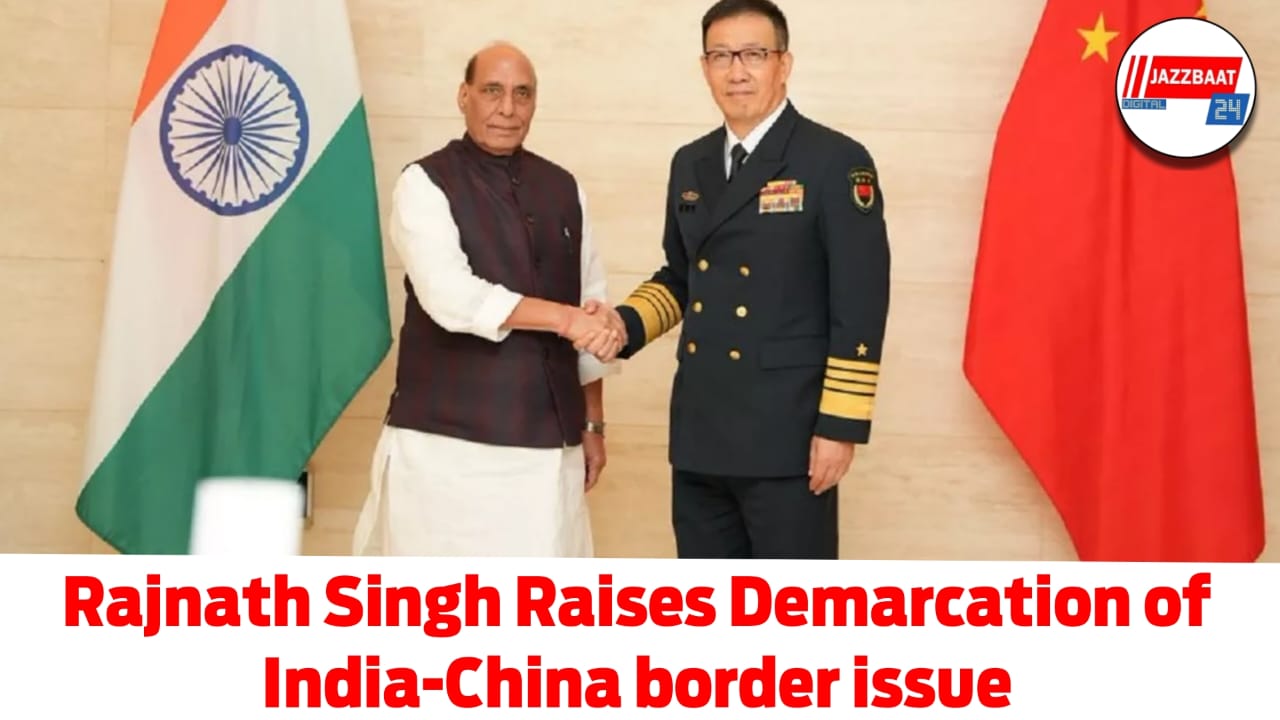
Qingdao, 27 June 2025:
During discussions with his Chinese counterpart, Admiral Dong Jun, on the fringes of the Shanghai Cooperation Organization defense ministers' summit in Qingdao, Indian Defense Minister Rajnath Singh expressed concerns about the long standing unmarked border with China.
Singh emphasized that temporary solutions would not be adequate and that a "permanent solution" to the 3,800 kilometer disputed border is urgently needed. In addition to outlining a methodical plan for disengagement, border management, and eventual demarcation, he urged the resuscitation of long standing bilateral mechanisms. The talks marked a "significant shift," according to the Indian defense ministry, which went beyond calling for a "early resolution" to include demands for tangible progress.
Singh called for efforts to close the trust gap created by the deadly 2020 conflict in Eastern Ladakh, which claimed the lives of 24 Indian and four Chinese soldiers. "We must implement the disengagement agreement of 2024, push forward de escalation, work on demarcation, and use our existing special representative mechanism to manage differences," he added, reinforcing the significance of ongoing dialogue. New Delhi's statement represents a more firm stance, even though China has not formally responded to India's statements and reportedly views the border dispute as only one aspect of larger bilateral relations.
The two ministers also decided to increase military and diplomatic communication and restore direct air services that had been halted following the 2020 conflict.
India cited the lack of a strong condemnation of terrorism in the SCO final communique as the reason for its refusal to sign. Singh issued a warning that terror hotspots would no longer serve as safe havens, specifically targeting organizations that operate out of Pakistani territory. Singling out China on border demarcation, according to observers, represents a combination of strategic clarity and diplomatic engagement, eschewing previous ambivalence. Singh's four-point plan, according to analysts, signals India's willingness to put agreements into practice by establishing concrete objectives beyond de escalation. This cautious rapprochement is evident in Singh's second meeting with Admiral Dong since the 2020 standoff. In addition to pledging to further consult on military communication and border management, both sides emphasized regional stability.
As the SCO defense ministers' meeting came to an end without a joint statement on terrorism, India's firm stance on border demarcation and counterterrorism demonstrates a well balanced approach that strikes a balance between a willingness to work with others on more general regional issues and a willingness to draw clear boundaries on strategic matters.